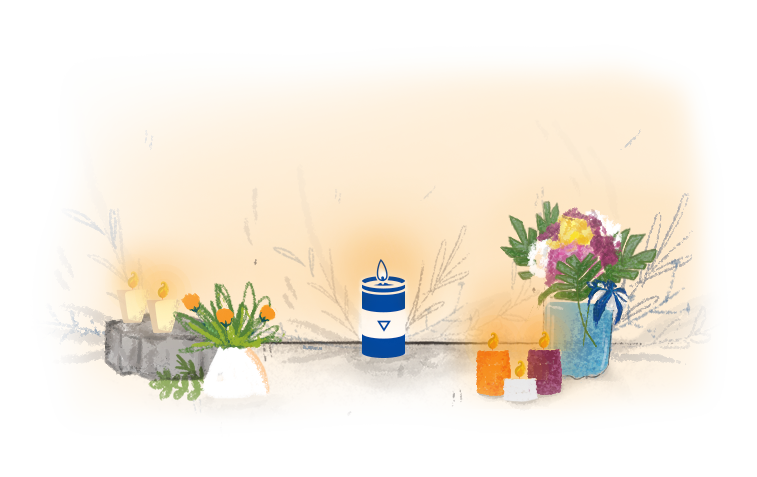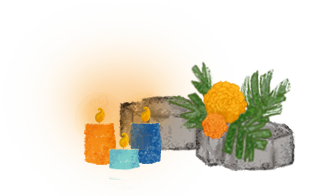
Ismael Josué Pérez Vílchez
32 Years Old - Gypsero

Ismael Josué Pérez Vílchez
“I do not want money, I want justice”
Murdered in Managua on April 22, 2018
Ismael Josué Pérez Vílchez was 32 years old and was a construction worker. He worked installing gypsum roofs in hotels and projects outside of Managua. Sometimes he would be out working in the provinces for up to 15 days. He lived with his wife and their two children.
María Ramona Vílchez Delgadillo says that she and her son had a good relationship. They went through a lot, but they supported each other in solving their problems. Ismael was very responsible with his two children, but he also supported his mother. She recalls that there was a time that they earned very little and only ate beans and fried tomatoes, which is why Ismael decided one day to go work in the countryside, to Estelí, in order to increase their income. He was a dynamic young man, helpful and generous. “He didn’t like trouble; he ran away from disturbances… He said that he preferred for people to say ‘he ran so that he could live to fight another day’,’ his mother says. His son, Jeffrey Gabriel, says that Ismael was happy, charming and a good cook.
He mother did not see him much because the young man would get home late from work. The company would bring him home and he would come home very tired. The next day, he would get up early to get his two children ready and to make them breakfast. He was a good son, in solidarity with his mother, responsible regarding his two children and loving toward his wife. In addition, he helped his sister Betty with her veterinary studies.
Ismael Josué worked hard because he wanted to build a house for his mother, and he wanted his wife and children to have their own house. He brought home some materials that he collected in the places that he worked and used them to help make repairs to the house.
On April 22, when he went to work, María Ramona gave her son a very big hug, as if she had a premonition. “I gave him such a big hug, so big, which was strange for me… I had never before given him such a big hug. I accompanied him to the corner, and that was the last image of him that I remember,” she says.

“I have never been a partisan for Daniel Ortega, but Ismael was Sandinista; he went to the repliegues (commemorative Sandinista marches) and to the Plaza,” his mother says. She remembers, however, that it bothered him a lot to see how they hit the elderly folks and he was even more outraged when they killed the journalist, Ángel Gahona and when they shot and wounded a kid from the neighborhood, who is now in a wheelchair. “He was outraged and went out to shout in the street. He complained of the injustice against the elderly. He was mad; he was irate,” she added.
When the company’s little truck came to pick him up on the morning of April 22 to go to work, the city was tense. “It was seething with police and there were robberies here and there, so they decide to come back. Later, we hear that the Sandinista Youth are looting the PALI and he decides to go defend the supermarket. When he arrives, he finds that the police are there and, in the gunfire, a police officer shoots him in the face,” his mother says.
María Ramona remembers the anguish that she felt when they told her that her wounded son had been taken to the hospital, “When I arrived at the hospital, he was alive; his eyes were open. I put my hand under his head and he just lifted his eyes when he heard my voice. A little later, he died in my arms.”
“I took strength from my pain and I told myself: I have to be strong, I have to remain steadfast, even though I am dying inside. When the television channels and the journalists interviewed me, I became serene, without crying, to not give the police that killed my son any pleasure. My son did not have a wake. The wake was bad, because I had to move the body from here to there, because the police were looking for the wake,” she says indignantly.
Days later, the Minister of Health, Sonia Castro, arrived at María Ramona’s house to offer money and assistance in exchange for writing new testimony about Ismael’s death. They asked her to say that her son had died in a gang fight. They offered her 75,000 cordobas. “I want justice,” she answered them.
“I want justice to be done. I want clarification about who the person was that took the life of my son. I want them to pay for what they did. To suffer what we are suffering. My son was a happy and dynamic boy. In my heart, I feel that he is still alive,” says María Ramona.
I want to know more